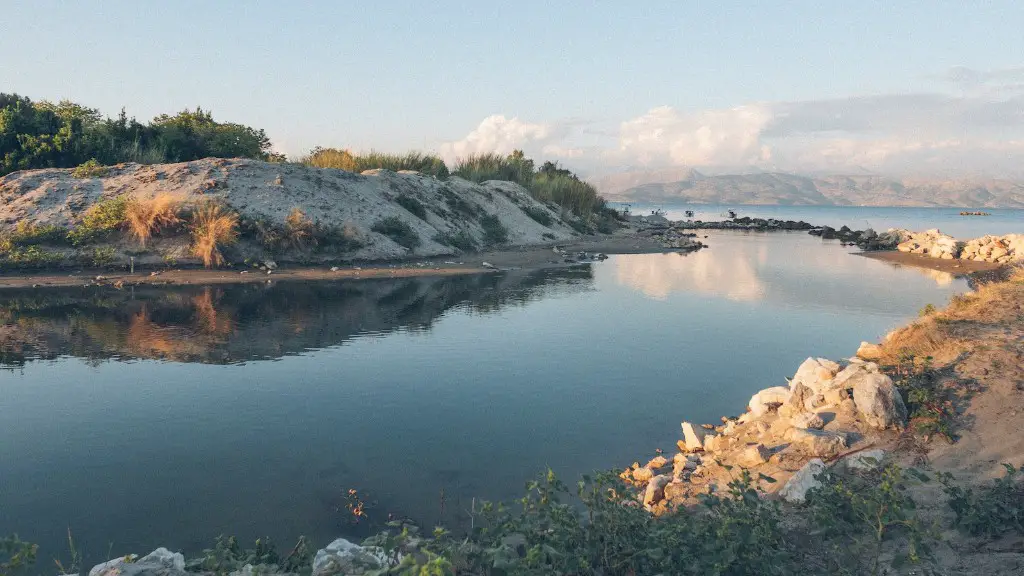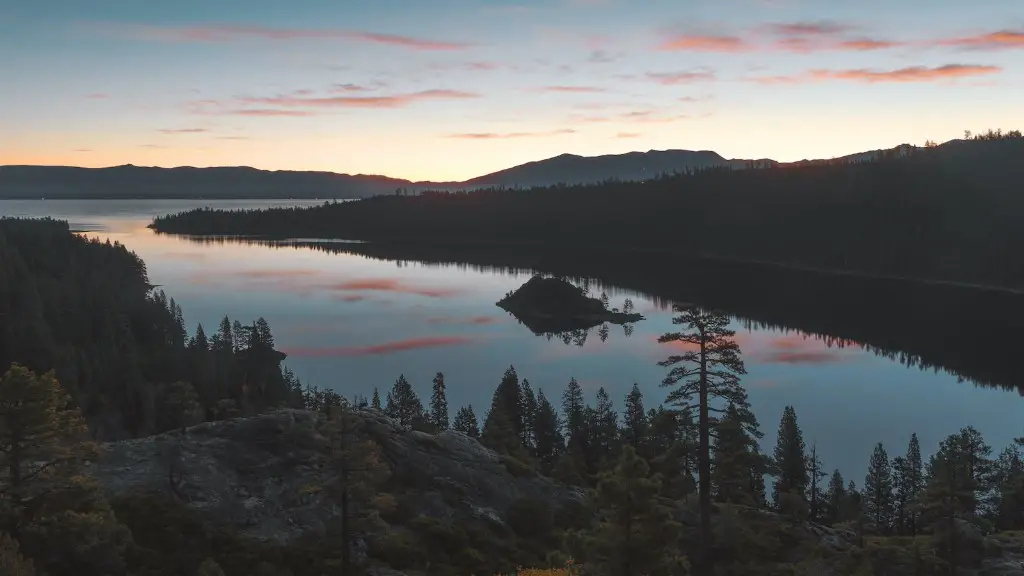Introduction
The Mississippi River, a major waterway of North America, is the second-longest river in the United States. The river has been an integral part of US history, providing key transportation, commerce and irrigation. This river is also host to devastating floods that can cause major property damage, economic loss and even loss of life. One of the questions many people ask is, does the Mississippi River ever close? In this article we will explore the answer to this question, discussing the effects of flooding and how these might cause the river to close.
Is the Mississippi River Closed During Floods?
The answer to this question depends on several factors. When flooding occurs, the US Army Corps of Engineers may take action to protect people and property by temporarily closing off sections of the Mississippi River. In some cases, the Mississippi River may be closed at lock and dams if the flooding becomes too dangerous. However, the Mississippi River does not completely close for flooding; instead, certain areas may be closed off or partially closed off.
When the Mississippi River is affected by flooding, it can cause a variety of problems. Floods can threaten the safety and security of communities, leading to disruption in transportation and commerce. Floods can also cause significant property damage, leading to costly repairs or full replacement of infrastructure and buildings. In severe cases, flooding can cause an entire region to be evacuated, resulting in long-term displacement for thousands of people.
Effects of Flooding on the Mississippi River
The effects of flooding on the Mississippi River can be wide-ranging and impactful. If flooding is severe enough, it can cause the water to overflow its banks, leading to serious flooding and damage. Flooding can also damage boat docks and other river-based infrastructure. Furthermore, flooding can cause bridge closures and embankment breaks, disrupting important transportation links along the river.
When flooding occurs, the US Army Corps of Engineers takes steps to manage the waters, and they may take action to close off parts of the river, such as at lock and dams. This can help to protect communities from rising waters, and also helps to conserve the river’s vital resources. Even with certain sections temporarily closed, the Mississippi River still flows downstream and is generally unaffected by the floods.
Preventing Floods and Mitigating Damage
Authorities and engineers have long been looking for ways to prevent flooding along the Mississippi River, or to at least reduce the damage caused by such floods. Significant efforts are put into maintaining dams, levees and other structures that can help to control the flow of water and mitigate damage. New technologies have also been developed to strengthen these structures, making them better able to manage flooding.
Furthermore, detailed river models are used to help predict and manage floods, so that authorities can prepare for and respond appropriately when flooding occurs. These models provide useful information about the location, causes and expected outcomes of flooding. This in turn can allow authorities to make informed decisions about the Mississippi River, allowing them to make decisions that minimise damage.
Environmental Effects of Mississippi River Floods
Flooding along the Mississippi River can have major environmental effects as well. Flood waters can cause excessive erosion, leading to loss of valuable soil, destruction of natural habitats and destruction of important ecosystems. Furthermore, flooding can introduce large amounts of pollutants into local water supplies, leading to further environmental damage and contamination.
The combination of flooding and pollution can be a significant threat to local ecosystems and wildlife. As these can be hard to clean up, it’s important that authorities, engineers and conservationists all work together to try and mitigate any potential damage from floodwaters.
Conclusion
In conclusion, it’s clear that the Mississippi River doesn’t close during floods. However, flooding can still have a major effect on the waterway. The US Army Corps of Engineers can take measures to protect people and property, such as closing off sections at lock and dams, but this may only be temporary. Furthermore, preventive measures and strategies are employed to manage flooding, and there is also a lot of research into understanding and predicting floods. It’s also important to be aware of the potentially damaging environmental effects of flooding, as these can be hard to reverse.
Recreation on the Mississippi River
The Mississippi River is still a popular recreational destination for people from all over the country. It offers visitors a range of activities including fishing, boating and camping. In spite of the threat of flooding, the river has remained an important source of recreation. Along the river, there are a number of parks, nature preserves and wildlife refuges, all of which are popular drawcards for visitors. The Mississippi River also has a rich cultural history, and this is celebrated with a variety of festivals, museums and heritage sites.
In spite of its unpredictable nature, the Mississippi River remains a major Northwest artery, home to a rich diversity of flora and fauna. Those interested in learning more about this beautiful river should consider taking a boat tour, or simply visiting one of the many parks and museums.
Economic Benefits of the Mississippi River
In addition to recreation, the Mississippi River is also an important source of economic activity in the Northwest. Shipping companies, industry and tourism all benefit from the river. The river itself is also home to a number of power plants that generate electricity for the entire region. The river is also an important source of fresh water, providing drinking water to millions of people throughout the region.
It’s clear that the Mississippi River plays an important role in the economy of the Northwest. In spite of the potential risks posed by flooding, the river still provides a range of benefits to the region.
The History of the Mississippi River
The US Army Corps of Engineers has been actively managing the Mississippi River since 1882. The Corps is responsible for maintaining the river and making sure it is able to safely support the economic and recreational activities that rely on it. The Corps also has an active role in flood prevention and management, ensuring that flooding does not damage the river’s vital resources or endanger lives and property.
The Mississippi River has been a major part of American history and continues to be an integral part of the region’s economy and culture. Over the years, the Corps has improved technologies, techniques and methods for managing the Mississippi River, and it continues to provide an important service for the region.




